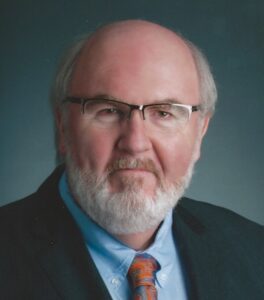Black Lives Matter/All Lives Matter
Once again, I find events troubling enough to make me want to speak out – if I were not reasonably certain that contracting the COVID virus would be life-threatening for me, I’d probably be in the streets. In lieu of that, here’s my take on BLM/ALM.
During the Tulsa rally and the events swirling around its perimeter, groups of protesters shouted “Black Lives Matter,” and groups of rally supporters responded with “All Lives Matter.” That seems to be a common occurrence at demonstrations and political exchanges across the country. Why should that bother me? Let me use an analogy.
If I told you, “my sister just died,” you would probably respond with something like, “I’m sorry for your loss.” You might truly mean that, and I would appreciate the expression of condolence. Even if you did not know me well, did not know my sister at all, and really were not affected, you would probably still take the “sorry for your loss” approach because that would be considered, in context, to be sensitive and polite. Again, I would appreciate the expression. And, even if you did not feel any deep sense of my loss, you probably would not say something like, “everybody dies sooner or later.” While that is objectively true, and is a statement that I would agree is true, in context that is something only an unfeeling, crass, jerk would say.
Black Lives Matter. What is the context? Statistics can be overused, but some basic comparisons make it clear that, on average, black lives are lived and valued differently than white lives.
The police kill a lot of people – over one thousand in 2019. The rate of fatal shootings of black citizens by police is far higher than for white citizens. Whites are killed by the police at the rate of 13 per million annually. Blacks are killed by the police at the rate of 31 per million – nearly three times as often. If you add hispanics to the mix, police kill non-white citizens at the rate of 54 per million – more than four times as often.
Black defendants are six times more likely to be sentenced to prison for crimes similar to those committed by white defendants, and the sentences are proportionately longer. White minors are arrested at the rate of less than 2000 per 100K. Black minors at the rate of 5000 per 100K – more than twice as often. White adults are incarcerated at the rate of less than 500 per 100K, while black citizens are incarcerated at the rate of 1500 per 100K – more than three times as often.
A widely reported analysis by EdBuild suggests that school districts with non-white students as a majority receive, across the US, $23 billion dollars less each year than districts with majority white students – the average white student begins with a head start on black students, an advantage that reverberates throughout life. There are obvious exceptions, but most citizens die in the same social class in which they are born. Less than 10% of whites under 18 live in poverty, while more than 30% of blacks under 18 live in poverty.
Black infant mortality rates are more than twice as high as white infant mortality rates – 4.7 per 1000 for whites, 11 per 1000 for blacks.
Maternal mortality is worse: 14.7 per 1000 for whites, 37.1 per 1000 for blacks.
Average life expectancy for a black citizen is nearly 5 years less than for a white citizen. To quote the American Bar Association’s research findings: “Black people simply are not receiving the same quality of health care that their white counterparts receive, and this second-rate health care is shortening their lives.”
There are many complex reasons for all of the things that indicate that black lives do not matter as much as white lives in this country. And it is possible to point to notable exceptions to all of the statistics I’ve cited. But the fact is that, in context, black lives are treated as if they do not matter in the same way white lives matter.
So, hearing “Black Lives Matter” and responding “All Lives Matter” is analogous to telling me, “everybody dies sooner or later.” Black Lives Matter. Yes, they do. All Lives Matter. That’s objectively true, and I agree that all lives matter. But responding to Black Lives Matter with All Lives Matter is, in context, at best insensitive and is, frankly, offensive.


